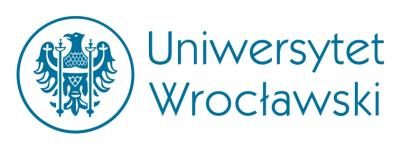The Research Centre for Children’s and Youth Literature at the University of Wrocław invites you to the first lecture in the series “International Voices in Children’s Literature Studies”. This time our guest will be Professor Marina Balina (Illinois Wesleyan University). She will give a lecture entitled “Writing Ancient History as “Oppositional Enlightenment”: On Historical Novels in Soviet Children’s Literature of the 1960s-1970s”.
Professor Marina Balina (Illinois Wesleyan University, USA) works on historical and theoretical aspects of twentieth-century Russian children’s literature. She is the author of numerous articles and editor of eleven monographs on children’s and young adult literature, including Hans Christian Andersen and Russia (University Press of Southern Denmark, 2020). She is currently preparing a volume with Serguei Oushakin entitled ‘The Pedagogy of Images: Teaching Communism to Children’, which will be published by University of Toronto Press in spring 2021. Prof. Balina is a member of the Scientific Council of the Research Centre for Children’s and Young People’s Literature at the University of Wrocław.
The lecture entitled “Writing Ancient History as “Oppositional Enlightenment”: On Historical Novels in Soviet Children’s Literature of the 1960s -1970s” is devoted to the function of ancient history as “oppositional enlightenment” in historical novels in Soviet children’s literature of the 1960s and 1970s. In her talk, Prof. Balina will focus on the emergence and transformation of the historical canon in Russian children’s literature. While historical prose for children written in the Soviet period consistently maintained its obligatory ideological agenda, its educational role remained equally important, which either eliminated the obligatory ideological theme or reduced it to a minimum. Compared to authors of adult literature, children’s writers found it easier to turn to events in ancient history; as a result, this prose became a desirable arena for professional historians, who began to use it as a creative outlet that freed them from the constraints of politicized history (Milii Ezerskii, Alexander Nemerovskii, Samuil Lur’e, Melitsa Mat’e). Often written as paratexts, with plenty of footnotes and references, these stories provided an antidote that satisfied the mutual longing for historical knowledge that both writers and their readers needed in their lives.
The lecture (in English) will start on 10 March 2021 at 18.00 on the MS Teams platform. If you are interested in attending the lecture, please email us by 8 March at mateusz.swietlicki@uwr.edu.pl.
Previous lectures organised by the Centre for Research in Children’s and Young People’s Literature are available on the YouTube channel – search for information here: http://www.cbldm.uni.wroc.pl/en/lectures-on-line/.
